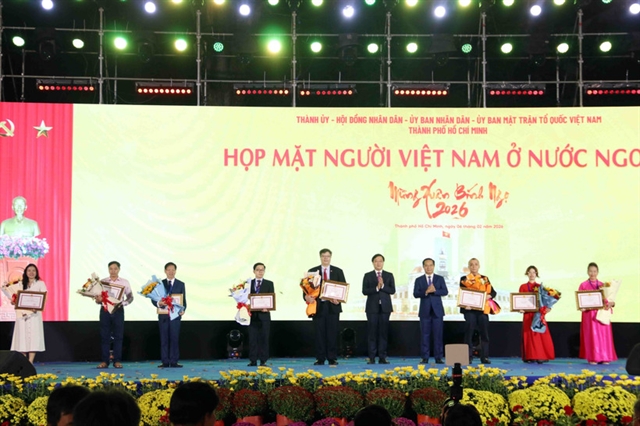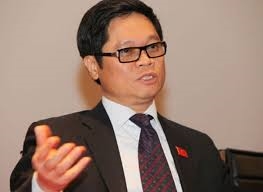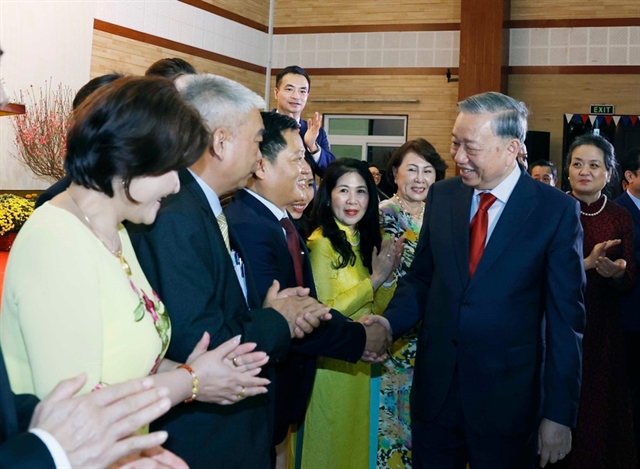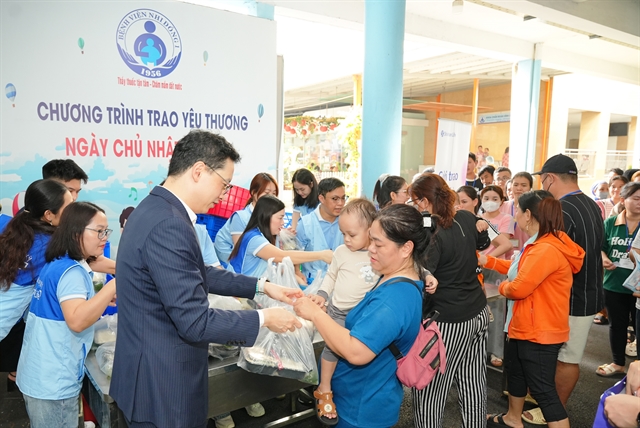 Opinion
Opinion

Vũ Tiến Lộc, president of the Việt Nam Chamber of Commerce and Industry (VCCI), talks with Nhân Dân Cuối Tuần (People Weekly) Newspaper about creating a good business environment in Việt Nam.
 |
| VCCI President Vũ Tiến Lộc. -- taichinhplus.vn photo |
Vũ Tiến Lộc, president of the Việt Nam Chamber of Commerce and Industry (VCCI), talks with Nhân Dân Cuối Tuần (People Weekly) Newspaper about creating a good business environment in Việt Nam.
How would you rate the business environment of Việt Nam at present?
In my opinion, the business environment of Việt Nam is not good enough. One of the most serious shortcomings is overlapping and cumbersome administrative procedures. Administrative procedures have improved since last year. But Việt Nam still lags behind other countries in the region.
Businesses face difficulties accessing resources such as capital and land. Land and other sources should be accessed under market rules. But land, natural resources and credit had been poured into some ineffective fields, which caused low productivity for the whole economy.
Vietnamese businesses have been bearing the burden of high business costs. Can you explain the situation?
It is true. Vietnamese businesses bear the burden of high business expenses, including high capital costs and high interest rates. In some countries in the region, interest rates were zero per cent during the economic crisis. But in Việt Nam, the interest rate was still high.
So in terms of capital expenses, Vietnamese enterprises lost against other countries’ businesses.
Other expenses - such as salary, healthcare, social insurance, electricity, and water consumption - have been increasing which hindered the competitiveness of Vietnamese enterprises.
Vietnamese businesses were unable to compete fairly with foreign businesses, because of the high expenses they had to pay.
Is my opinion, the State should support businesses to reduce business costs and to increase access to capital sources to expand production and operation.
The high expense is related to administrative procedures. So reforming processing procedures will help businesses save money and time - and create a good business environment.
We have to achieve international standards for business. For example, goods clearance at customs in Viet Nam takes 13-14 days, while in other countries it takes only 3-4 days.
At a recent meeting, the Government set a target of having 2 million enterprises by 2020. Do you think the target is achievable?
Yes. If the State and Government develop proper policies to help 4.6 million business households shift into enterprises. The Government should create a trust for people and businessmen to pour money into production, in the context of the current economic crisis.
The meeting between the Prime Minister and the business community brought a message of a safe and protected business environment. The Government should remove difficulties and create favourable conditions for enterprises.
Come July 1 this year, illegal businesses will be legally defined as civil cases, rather than as criminal cases harmful to society as a whole. This will remove illegal business activities from the Criminal code. What will this mean for the business community and business environment?
It is very significant.
Currently, the business environment in Viet Nam is full of hurdles, unsecured, and highly risky when it comes to legal matters.
Trust in businesses is secured by the safety of the business environment. So defining illegal businesses as civil cases, rather than as criminal cases harmful to society as a whole, is a breakthrough.
Enterprises have a right to conduct business in any field they want. Business fields vary rapidly. So the State has to ensure an expanding space of doing business for enterprises. The State should not limit this space.
In my opinion, the next 3 years will be difficult for Vietnamese businesses. The context of in-depth international integration is a definite challenge. Vietnamese businesses have to prepare well to compete fairly with enterprises from TPP (Trans-Pacific Partnership) countries.
If Vietnamese enterprises are not given practical assistance from the Government, the number of successful Vietnamese businesses will be diminished. And then there will be a playing field of mainly FDI (foreign direct investment) enterprises. — VNS




